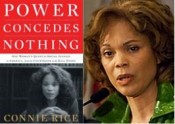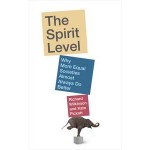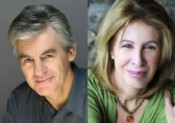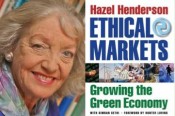Free Forum Q&A – TIM DECHRISTOPHER: Civil disobedience (bidding) at public lands auction landed him 21 months in prison
Written on May 25th, 2014 |
Aired: 6/30/13
On December 19, 2008 TIM DeCHRISTOPHER disrupted a highly disputed BLM auction, effectively safeguarding thousands of acres of land. Not content to merely protest outside, Tim entered the auction hall and registered as bidder #70. He outbid industry giants on land parcels (which, starting at $2 an acre, were adjacent to national treasures like Canyonlands National Park), winning 22,000 acres of land worth $1.7 million Two months later, incoming Interior Secretary Ken Salazar invalidated the auction. Yet DeChristopher was indicted and tried on two federal felonies and spent 21 months in prison.
Released in April 2013, DeChristopher is the subject of documentary film, Bidder 70, which opened this weekend at the Music Hall in Beverly Hills and other theaters around the country. He joins me this week to tell his story. What led him to that auction? What went through his mind as he began bidding and winning? Why didn’t he take a plea deal? What was his experience in prison? What message does he have for others?
We’ll also talk about the state of the movements to deal with energy, environment, and climate change, in light of Obama’s recent speech and the eventual decision whether or not to build the KeystoneXL pipeline.
“At this point of unimaginable threats on the horizon, this is what hope looks like. In these times of a morally bankrupt government that has sold out its principles, this is what patriotism looks like. With countless lives on the line, this is what love looks like, and it will only grow…
— From Tim DeChristopher’s statement to the court at his sentencing hearing
Q&A: Connie Rice – author, Power Concedes Nothing
Written on March 2nd, 2014 |
Originally Aired: 04/01/12
Too often problems are not solved, solutions are not found or implemented, and money, lives and moments of opportunity are wasted.
CONNIE RICE has taken on school and bus systems, Death Row, the states of Mississippi and California, and the LAPD – and won. Not just in court but also on the streets and in prisons, where she has spearheaded campaigns to reduce gang violence. She has long been dedicated, in her words, to finishing what Martin Luther King Jr started, and she pursues that aim with a focused passion, intelligence, and commitment.
Too often we oppose each other rather than looking for every opportunity to align to solve a problem. Rice sues a model of law enforcement that dominated Los Angeles for decades. In response, the model begins to shift. She then works with — and finally — within LA Law Enforcement. The model shifts some more. Such movement calls for the right sequence of opposition and cooperation, the strategic use of the tools available, and the ability of both sides to shift from litigation to collaboration.
http://powerconcedesnothing.com
Q&A: RICHARD WILKINSON & KATE PICKETT, Authors – The Spirit Level: Why More Equal Societies Almost Always Do Better
Written on March 2nd, 2014 |
Originally Aired: 01/31/10
RICHARD WILKINSON & KATE PICKETT authors of an important new book: The Spirit Level: Why More Equal Societies Almost Always Do Better
In the UK, the Guardian says The Spirit Level “might be the most important book of the year, and The New Statesman named it one of the top ten books of the past decade.
Based on thirty years’ research, The Spirit Level shows that unequal societies are bad for the well-off as well as the poor, when it comes to health and social problems, child well being, life expectancy, infant mortality, obesity, educational scores, drop out rates, illegal drug use, mental illness, homicide, incarceration, CO2 emissions, recycling, social mobility, innovation, and levels of trust.
The good news: If all these ills are related to one measure – income inequality, then, decreasing inequality should be the central goal of our politics because we can be confident that it works.
RICHARD WILKINSON has played a leading role in international research on inequality. He studied economic history at the London School of Economics before training in epidemiology, and is Professor Emeritus at the University of Nottingham Medical School and Honorary Professor at University College London.
KATE PICKETT is a senior lecturer at the University of York and a National Institute for Health Research Career Scientist. She studied physical anthropology at Cambridge, nutritional sciences at Cornell and epidemiology at Berkeley before spending four years as an Assistant Professor at the University of Chicago.
Free Forum Q&A: TERRENCE McNALLY Turning the tables, my turn to answer Qs interviewed by Sara Davidson
Written on February 4th, 2014 |
Aired: 2/2/14
I am going to take a hiatus from this show in a few weeks, for the first time in 17 years. I need to focus on some other projects, including a book I’m writing, and won’t be able to afford the time to produce and host this show probono.
In anticipation of this upcoming break, I will be the guest this week and SARA DAVIDSON, best-selling author of Loose Change and Leap, whose new book, The December Project will come out in March, will be interviewing me. I’ve long thought it is only fair that I have to answer a few questions and this week it’s going to happen.
Free Forum Q&A- HAZEL HENDERSON, Ethical Markets Can We Still Solve Big Problems?-Part2
Written on January 29th, 2014 |
Aired: 1/26/14
As we begin a new year, let’s look at where we are in the big picture. What are the most critical issues facing the US and the world? How do you see things moving in those areas? How are things getting worse or better? What should we be keeping our eyes on in the year to come?
My guest this week will be HAZEL HENDERSON, who’s been asking these sorts of questions for at least the last 40 years. We’re going to approach this exploration globally as well as nationally, with a long-term view, and with an eye toward relationships and systems that we often miss in our day-to-day focus on the latest news and events.
If this sounds familiar, it’s because this was my plan a few weeks ago when Hazel was my guest. But we ended up spending so much time on her journey – a remarkable journey it is, a mom in New York who’d never been to college got upset about pollution threatening her young child, became an activist, and developed into a global expert on economics and sustainability.
